Share on social

Empowering Leadership: The Crucial Role of Emotional Intelligence in Business
Wednesday 22 May 2024
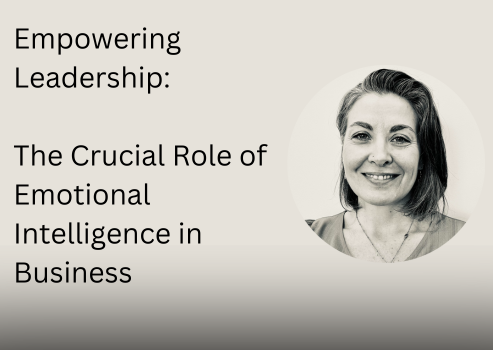.png?lang=en-GB&ext=.png)
Historically, leadership has been associated with traits traditionally considered masculine, such as assertiveness, dominance, and toughness. However, these ideals are being challenged as research demonstrates the value of traits typically associated with emotional intelligence, such as empathy, collaboration, and communication. While traditional markers of leadership such as decisiveness and strategic thinking are still important, there is growing recognition that emotional intelligence skills play a pivotal role in business success.
What is it?
Emotional intelligence (EI) refers to both intrapersonal skills (the ability to recognise, understand, and manage our own emotions), and interpersonal skills (appropriately anticipating and responding to the emotions of others). It encompasses skills such as empathy, self-awareness, self-regulation, social awareness, and relationship management.
How do we do it?
Take care of yourself and be considerate of others: stress, poor boundaries, and lack of attunement has a direct impact on teams, leading to inefficiency, dissatisfaction, illness, and loss of talent. Emotional and physical wellbeing are therefore critical drivers of organisational success. Female leaders who prioritise good life/work boundaries, who take time to foster good relationships, and who demonstrate the value of maintaining their own emotional wellbeing while being sensitive to those around them, are more likely to create a supportive and empowering work environment where everyone feels valued, motivated, and fulfilled. Yes, things need to get done and a business needs to be productive, but by avoiding chronic stress, taking time to recharge and enjoy ourselves, recognising and celebrating achievements, and fostering a culture of recognition and appreciation, we all feel happier, more engaged and enthusiastic about our work, which does actually leads to greater productivity.
Say what you mean, and mean what you say: trust is the foundation of strong leadership, and showing that we can walk the walk as well as talking the talk, helps us to build and maintain trusting relationships with our staff, clients, and stakeholders. Leaders who demonstrate authenticity, consistency and integrity earn the trust and respect of those around them, inspiring loyalty and commitment. Prioritise being transparent, accountable and consistent to cultivate stronger rapport with your customers and colleagues and foster a culture of goodwill and collaboration.
Become a great listener: when people feel respected, heard and understood it inspires greater collaboration and trust within teams. By taking time to be curious and actively demonstrate that you understand the perspective and feelings of others, you will create a culture of respect, understanding, and belonging where diverse perspectives are valued. This inclusive approach not only enhances team dynamics but also fosters greater creativity, innovation, and engagement.
Welcome problems as opportunities: rigid thinking, fear, defensiveness and blame can make a great bunch of people absolutely miserable, real fast. Amy Edmondson, a professor at Harvard Business School, introduced the concept of psychological safety in the early 1990s. Psychological safety refers to the belief that one will not be punished or humiliated for speaking up with ideas, questions, concerns, or mistakes. It's about creating a climate where individuals feel safe to take interpersonal risks, share their thoughts and feelings, and engage in open and honest communication. People with high emotional intelligence excel at seeking out different points of view, while articulating their thoughts and feelings clearly with a view to learn, innovate, and change. In order to do that we need to be prepared, have all the facts, give everyone affected a chance to contribute, and be open to our own thoughts and ideas being challenged. Leaders who approach problems head-on, and provide constructive feedback that feels respectful and supportive while navigating conflicts with grace and diplomacy, tend to create the emotional safety required to de-escalate tensions, which then allows them to arrive at solutions which have more positive and lasting impact.
At its core, effective leadership is about inspiring and empowering everyone to reach our full potential in our own unique way. A great coach doesn’t run around a pitch and kick the ball for her players - she develops and encourages the potential that she sees in her team with patience, guidance, structure and enthusiasm. By getting to know, recognise and promote the unique strengths and contributions of individual people, we harness the collective talents and diverse perspectives of our team. We appreciate them as they are, and work to their particular strengths while acknowledging their challenges with compassion. And that goes for us too - we don’t need to be great at everything, know everything, do everything, or have control over everything. When we embrace our own imperfection, work to our own strengths, and are honest about our challenges (mine is numbers - I’m terrible at maths!) it gives our team permission to share their problems, admit to mistakes without shame, and support one another. This fosters a culture of respect, interdependence and support.
As women in business, leveraging our emotional intelligence is not just advantageous—it's essential for navigating the complexities of doing business in today's world.
Who is Etain O'Kane?
Etain is the founder of Synergy Leadership a multi-disciplinary team of a communication and people experts. She works with high achievers, professionals and businesses to improve their social and emotional skills to meet the demands of todays working world, develop more productive relationships, and build cohesive teams. Etain is an experienced trainer, an accredited psychotherapist and a Gottman Method couples therapist. She is passionate about emotional wellbeing, effective leadership, group dynamics, and helping people to get unstuck.
If you would like further information on Emotional Intelligence Leadership training and 1-2-1 executive coaching get in touch on LinkedIn or visit her website www.synergyleadership.co.uk
What is it?
Emotional intelligence (EI) refers to both intrapersonal skills (the ability to recognise, understand, and manage our own emotions), and interpersonal skills (appropriately anticipating and responding to the emotions of others). It encompasses skills such as empathy, self-awareness, self-regulation, social awareness, and relationship management.
How do we do it?
Take care of yourself and be considerate of others: stress, poor boundaries, and lack of attunement has a direct impact on teams, leading to inefficiency, dissatisfaction, illness, and loss of talent. Emotional and physical wellbeing are therefore critical drivers of organisational success. Female leaders who prioritise good life/work boundaries, who take time to foster good relationships, and who demonstrate the value of maintaining their own emotional wellbeing while being sensitive to those around them, are more likely to create a supportive and empowering work environment where everyone feels valued, motivated, and fulfilled. Yes, things need to get done and a business needs to be productive, but by avoiding chronic stress, taking time to recharge and enjoy ourselves, recognising and celebrating achievements, and fostering a culture of recognition and appreciation, we all feel happier, more engaged and enthusiastic about our work, which does actually leads to greater productivity.
Say what you mean, and mean what you say: trust is the foundation of strong leadership, and showing that we can walk the walk as well as talking the talk, helps us to build and maintain trusting relationships with our staff, clients, and stakeholders. Leaders who demonstrate authenticity, consistency and integrity earn the trust and respect of those around them, inspiring loyalty and commitment. Prioritise being transparent, accountable and consistent to cultivate stronger rapport with your customers and colleagues and foster a culture of goodwill and collaboration.
Become a great listener: when people feel respected, heard and understood it inspires greater collaboration and trust within teams. By taking time to be curious and actively demonstrate that you understand the perspective and feelings of others, you will create a culture of respect, understanding, and belonging where diverse perspectives are valued. This inclusive approach not only enhances team dynamics but also fosters greater creativity, innovation, and engagement.
Welcome problems as opportunities: rigid thinking, fear, defensiveness and blame can make a great bunch of people absolutely miserable, real fast. Amy Edmondson, a professor at Harvard Business School, introduced the concept of psychological safety in the early 1990s. Psychological safety refers to the belief that one will not be punished or humiliated for speaking up with ideas, questions, concerns, or mistakes. It's about creating a climate where individuals feel safe to take interpersonal risks, share their thoughts and feelings, and engage in open and honest communication. People with high emotional intelligence excel at seeking out different points of view, while articulating their thoughts and feelings clearly with a view to learn, innovate, and change. In order to do that we need to be prepared, have all the facts, give everyone affected a chance to contribute, and be open to our own thoughts and ideas being challenged. Leaders who approach problems head-on, and provide constructive feedback that feels respectful and supportive while navigating conflicts with grace and diplomacy, tend to create the emotional safety required to de-escalate tensions, which then allows them to arrive at solutions which have more positive and lasting impact.
At its core, effective leadership is about inspiring and empowering everyone to reach our full potential in our own unique way. A great coach doesn’t run around a pitch and kick the ball for her players - she develops and encourages the potential that she sees in her team with patience, guidance, structure and enthusiasm. By getting to know, recognise and promote the unique strengths and contributions of individual people, we harness the collective talents and diverse perspectives of our team. We appreciate them as they are, and work to their particular strengths while acknowledging their challenges with compassion. And that goes for us too - we don’t need to be great at everything, know everything, do everything, or have control over everything. When we embrace our own imperfection, work to our own strengths, and are honest about our challenges (mine is numbers - I’m terrible at maths!) it gives our team permission to share their problems, admit to mistakes without shame, and support one another. This fosters a culture of respect, interdependence and support.
As women in business, leveraging our emotional intelligence is not just advantageous—it's essential for navigating the complexities of doing business in today's world.
Who is Etain O'Kane?
Etain is the founder of Synergy Leadership a multi-disciplinary team of a communication and people experts. She works with high achievers, professionals and businesses to improve their social and emotional skills to meet the demands of todays working world, develop more productive relationships, and build cohesive teams. Etain is an experienced trainer, an accredited psychotherapist and a Gottman Method couples therapist. She is passionate about emotional wellbeing, effective leadership, group dynamics, and helping people to get unstuck.
If you would like further information on Emotional Intelligence Leadership training and 1-2-1 executive coaching get in touch on LinkedIn or visit her website www.synergyleadership.co.uk
Wednesday 22 May 2024



 Contact us
Contact us
 Share on social
Share on social Share with a friend
Share with a friend Facebook
Facebook LinkedIn
LinkedIn
 Twitter
Twitter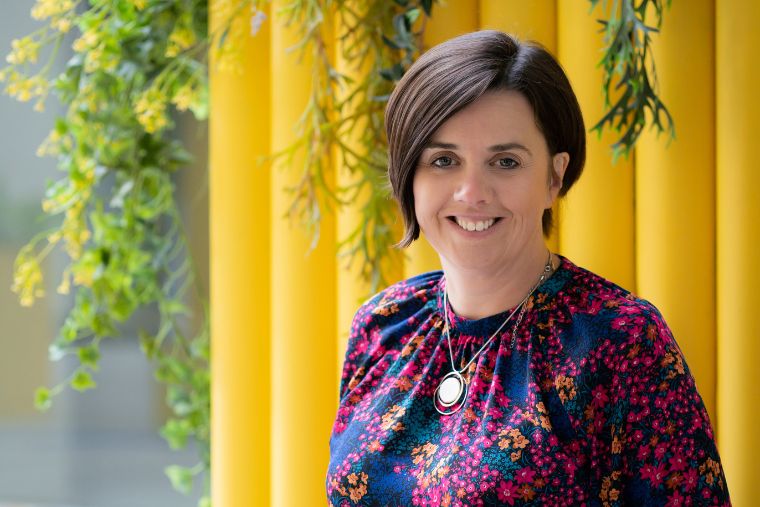


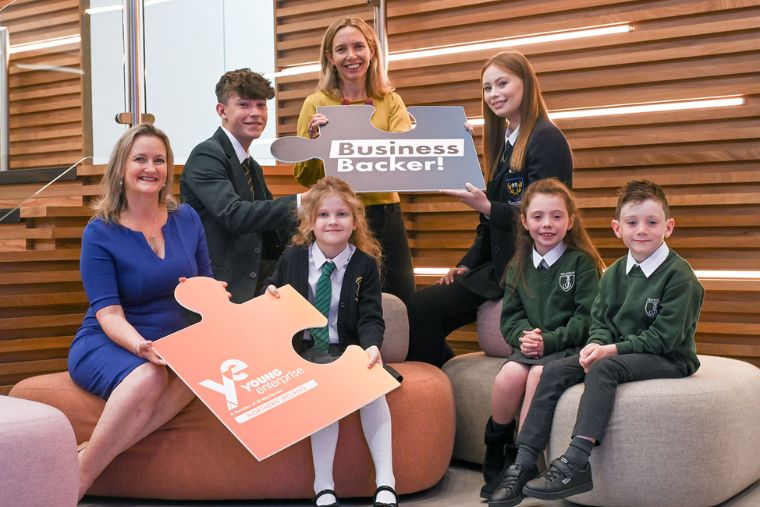

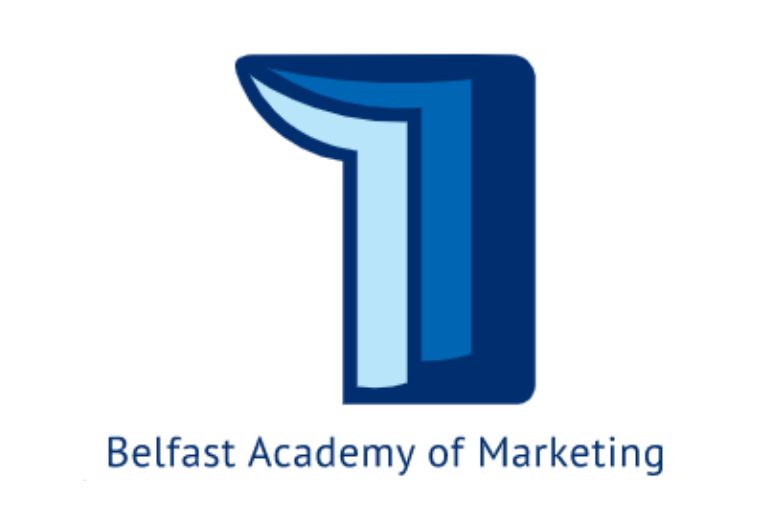

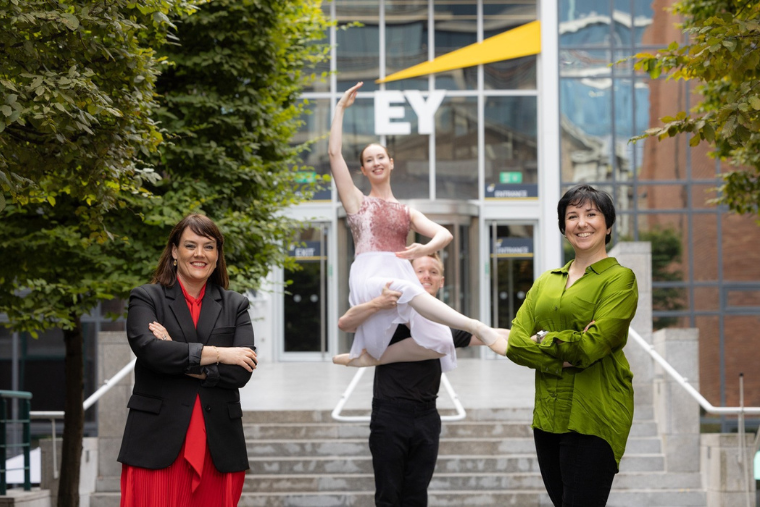

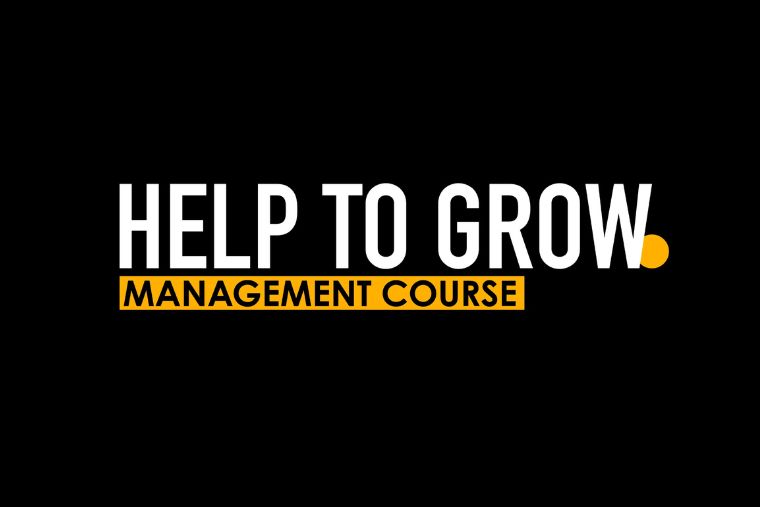



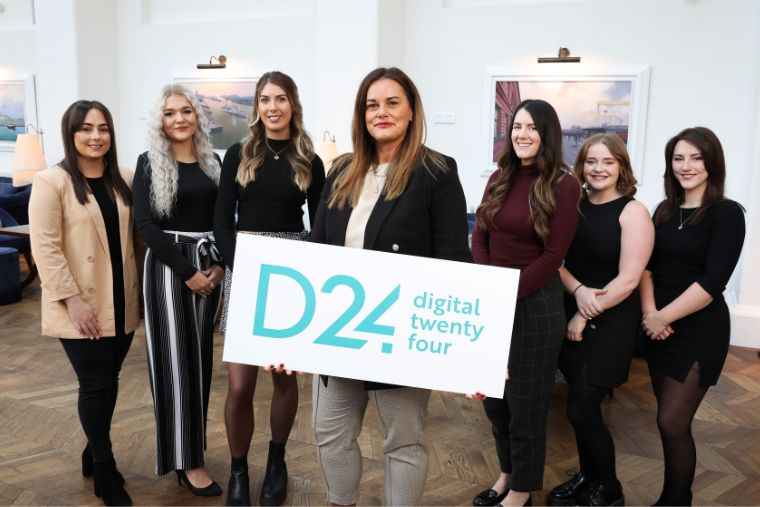


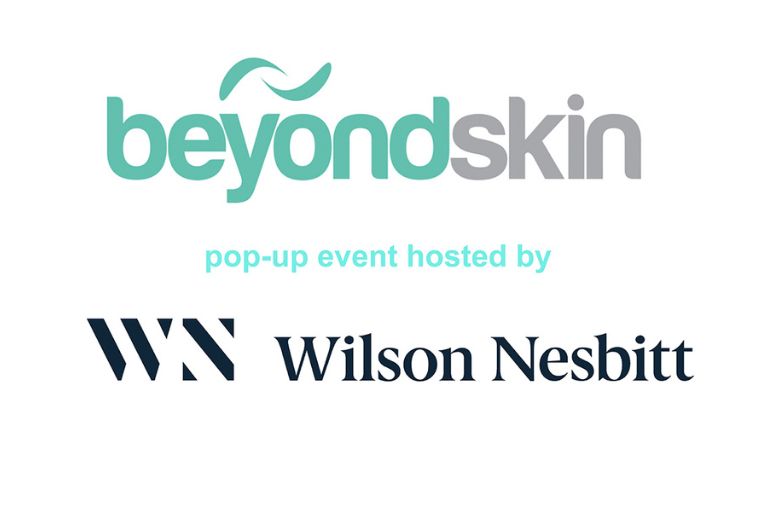




 Get in touch with us
Get in touch with us